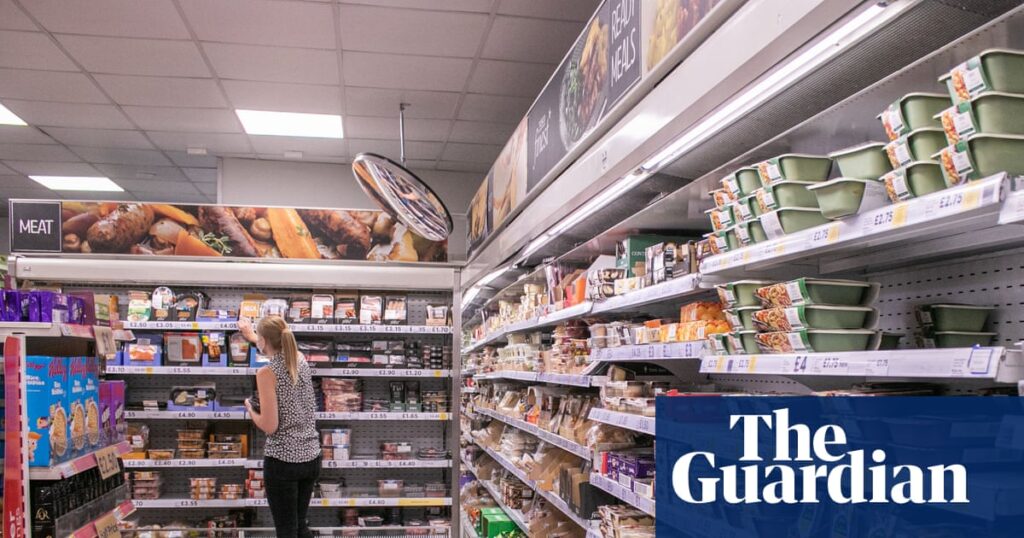Ham and bacon sold by supermarkets including Tesco, and Marks and Spencer still contain cancer-causing chemicals almost 10 years after the World Health Organization warned about the dangers of their use in processed meats.
Wiltshire ham is the product with the highest concentrations of nitrites, according to analysis that compared it to cooked ham and unsmoked bacon.
All of the 21 products tested in a laboratory were found to contain nitrites, which are used to preserve meat, despite the WHO in October 2015 declaring them to be unsafe.
Tesco’s Wiltshire ham contained the most nitrites – almost 33 milligrams per kilogram. That was 11 times the 2.88mg/kg in its cooked ham and almost four times the 8.64mg/kg in its unsmoked bacon. And it was also almost 18 times the 1.84mg/kg found in Morrisons’s bacon.
Other Wiltshire ham products, including those sold by M&S (28.6 mg/kg), Sainsbury’s (21.1mg/kg) and Morrisons (19.2mg/kg) also contained relatively high levels, although Asda’s version only had 8mg/kg.
Food campaigners, who want nitrites banned, said the findings were “alarming”.
Cancer charities said the widespread use of nitrites showed that people should eat as little processed meat as possible, such as ham, bacon and sausages, because consumption increases the risk of bowel cancer. Cancer Research UK estimates that 13% of the 44,100 cases of the disease diagnosed each year in Britain are linked to processed meat.
The analysis was commissioned by the Coalition Against Nitrites and undertaken by Food Science Fusion, an independent company, and the laboratory experts Rejuvetech. However, it found the levels of nitrites in all 21 products were well below the 150mg/kg legal limit.
A spokesperson for the Coalition Against Nitrites, which includes food safety experts, medical specialists and politicians from most of the UK’s major parties, said: “It’s nearly a full decade since the WHO classified nitrite-cured processed meats as a group one carcinogen and it is disappointing and alarming that we continue to see products on sale containing high levels of nitrites.”
They added: “Consumers are increasingly aware of the dangers of nitrites in processed meats, yet they continue to be exposed to their risks.”
Wiltshire ham contains such high levels of nitrites because during the production process the pork is injected with nitrates, as also happens with cooked ham. However, Wiltshire ham is then soaked in a bath of brine and nitrites, to give it its red colour and protect it from deadly bacteria. At that point a chemical reaction occurs, which turns nitrates into nitrites.
Prof Chris Elliott, the food safety expert who led the government-ordered investigation into the 2013 horsemeat scandal, said the research confirmed that nitrites remained “unnecessarily high in certain UK meat products”.
He added: “Given the mounting scientific evidence of their cancer risk, we must prioritise safer alternatives and take urgent action to remove these dangerous chemicals from our diets.”
Several food firms, including Finnebrogue and Waitrose, have responded to mounting concern about nitrites by producing bacon that is free of them.
Dr Rachel Orritt, Cancer Research UK’s health information manager, said: “Eating processed meat increases the risk of bowel cancer. Nitrites … can lead to cell damage, which is one of the ways that processed meat is linked to bowel cancer. The less processed meat you eat, the lower your risk of bowel cancer.”
Dr Giota Mitrou, the director of research and policy at the World Cancer Research Fund, said it recommended “eating as little, if any, processed meat as possible”.
A Tesco spokesperson said: “We follow all UK and EU requirements, alongside guidance from the UK Food Standards Agency, to ensure we get the right balance of improving the shelf life and safety of our products with limited use of additives.
“The nitrites levels in all of our products, including our traditionally cured Finest Wiltshire ham, fall significantly below the legal limits in the UK and EU.
“Nitrates and nitrites are an important part of the curing process for some meats and they are used to prevent the growth of harmful bacteria that cause serious food poisoning.”
Andrew Opie, the director of food and sustainability at the British Retail Consortium, which represents supermarkets, said: “Food safety is paramount to our members and they implement strict policies with their suppliers to ensure all products comply with UK food legislation.”


